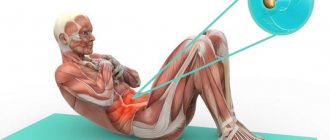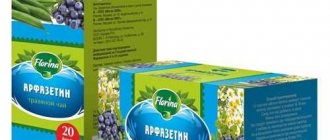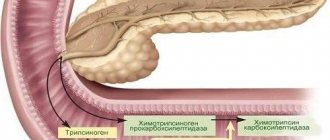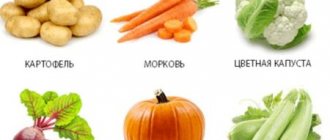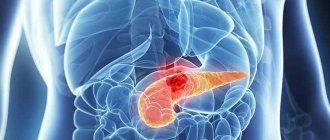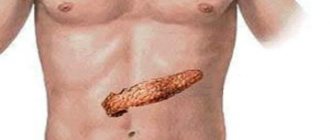The normal functioning of the pancreas ensures digestion processes. The slightest malfunction of the gland, caused by poor diet or alcohol abuse, can lead to pathologies of the organs associated with it, and over time to malfunctions of the entire body. To prevent this from happening, you need to know how to support the liver and pancreas.
If pathologies are detected, it is necessary to immediately begin treatment and restoration of the liver and pancreas.
Can the pancreas heal itself?
Pancreatic cells are formed in the embryo in the womb. The cells have a genetically determined program and they lose the ability to divide immediately after the organ is fully formed. Therefore, if cells die for any reason, the loss is irreparable.
But in diseases of the pancreas, the cells are not always destroyed, sometimes they are just damaged. In this case, improper functioning of the pancreas is also observed, but if the negative factor ceases to act, then regeneration begins. New cells are not formed, but the remaining cells, having been restored, can provide the original functionality of the organ almost 100%.
Pancreas
How long it will take to restore pancreatic function depends on the severity of the disease, the general health of the patient and how scrupulously he follows the doctor’s orders.
Functions
The pancreas performs intrasecretory and exocrine functions. First of all, it produces pancreatic juice containing enzymes and enzymes. It enters the duodenum and takes an important part in the digestion of food. In addition, individual cells of this organ produce hormones responsible for the absorption of glucose.
If any of these functions are disrupted, the health of the entire body suffers. Due to the lack of enzymes for digestion, the absorption of nutrients deteriorates, which negatively affects human performance and the functioning of all organs. And disruption of hormone production can lead to the development of diabetes.
The danger of such pathologies is that they often begin to develop unnoticed. A sluggish inflammatory process can lead to degeneration or death of cells. If treatment is not started promptly, it may be impossible to restore pancreatic function. Dead cells are replaced by scar tissue, which slows down the process of enzyme production. It will also not be possible to restore cells that are degenerating as a result of an inflammatory process or damage. But it is possible to stop pathological processes and prevent further disorders.
Means for the treatment of the pancreas, depending on the form of the disease
Pancreatitis most often occurs due to alcohol abuse or heavy fatty foods, any malfunction of the gallbladder and biliary tract, as well as due to infections, injuries, and autoimmune disorders.
Treatment drugs are prescribed based on the form of the disease and the severity of the patient’s condition. Most often used:
- painkillers (to relieve pain);
- antidepressants (in this case they are used not to correct the psycho-emotional state, but as an enhancer of pain medications);
- antispasmodics (stabilize the outflow of pancreatic juice, reduce pressure inside the ducts, reducing pain);
- pancreatic enzymes (prescribed not only in the most severe cases, when the destroyed gland is no longer able to produce enzymes on its own, but also as supporting drugs that enable the organ to rest and restore its functions as quickly as possible);
- drugs that reduce gastric acidity.
Also, to speed up the process of regeneration of the pancreas, the patient is prescribed a strict diet.
For acute pancreatitis
Acute pancreatitis is a deadly disease, so treatment in most cases is carried out in a surgical hospital. To relieve severe pain, analgesics and antispasmodics are prescribed. The patient is shown IVs that promote rapid removal of tissue breakdown products from the body, as well as drugs that enhance intestinal motility and pancreatic enzyme inhibitors, which help both correct the secretion production of the organ itself and restore the functioning of the pancreas.
To prevent the development of complications (primarily peritonitis) in acute pancreatitis, antibiotics with a wide spectrum of action are prescribed:
- Tsiprolet is a prescription drug from the group of fluoroquinolones;
- Levomycetin is a bacteriostatic antibiotic, the principle of which is based on disruption of protein synthesis in the microbial cell.
Levomycetin
The dosage of drugs is selected individually, taking into account not only the severity of the disease, but also the age of the patient, as well as the presence of concomitant diseases.
For chronic pancreatitis
To normalize the functioning of the pancreas in chronic pancreatitis, a long course of medication is prescribed. First of all, it is necessary to eliminate the cause that caused the inflammation. It can be:
- hormonal drugs (if the disease is autoimmune in nature);
- regulators of bile outflow (if the cause is pathology of the bile ducts).
Pancreatic enzymes are prescribed on an ongoing basis when the organ is so damaged that it is no longer able to produce enzymes on its own, that is, the digestive system stops digesting food.
In case of chronic inflammation of the pancreas, the use of antibiotics is not recommended, since their active substances, having penetrated the intestinal lumen, will destroy beneficial microflora, which is very difficult to restore later.
With exacerbation of chronic pancreatitis
In order to normalize the functioning of the pancreas as soon as possible, the patient is recommended to completely fast for 2-4 days. It is also necessary to urgently take measures for pain relief; for this, tablets or injections are prescribed. In order to support a weakened body, droppers with glucose solution are prescribed. To remove toxins as quickly as possible, increase your drinking regime. Complex therapy includes:
- painkillers for pain relief;
- antacids - to suppress the production of aggressive pancreatic secretions;
- enzymes - as replacement therapy to unload the organ.
Also, in rare cases, the doctor may prescribe a short course of antibiotics to eliminate and prevent the development of infection.
Drug treatment is carried out under the supervision of a doctor, who combines them and adjusts dosages as necessary to speed up the restoration of pancreatic cells.
Restoration of the gland after a heavy dose of alcohol
The best option for restoring the pancreas after drinking large amounts of alcohol is a couple of days of fasting.
Starvation
Choleretic drugs will help unload the organ, for example:
- rosehip infusion will help not only ease the work of the pancreas, but also improve the condition of the body by supplying it with the missing vitamins;
- Rowan infusion has not only a choleretic, but also an antitoxic and antimicrobial effect;
- Magnesia normalizes the functioning of the digestive organs, nervous system, and heart.
The best option to protect pancreatic cells so that you don’t have to think about their restoration later is to avoid alcohol abuse.
When are antibiotics prescribed?
Treatment of pancreatitis with antibiotics is not always prescribed. In each individual case, the doctor makes a decision on the advisability of such treatment, based on the data obtained from examining the patient.
In chronic pancreatitis, a course of antibiotics is most often prescribed after a relapse or in case of rapid progression of the disease. The duration of treatment is determined by the doctor, but usually the course lasts no more than 5-7 days. Longer use may cause a sharp deterioration.
If the disease is severe, combined-spectrum antibiotics are prescribed.
After completing the main stage of treatment, the patient must be prescribed a course of probiotics, which will help restore the intestinal microflora disturbed by aggressive drugs.
List of the most effective drugs
For the treatment of pancreatic diseases, the most popular medications are:
- Festal, Mezim, Pancreatin, Creon, Panzinorm - enzymatic preparations that help improve organ function;
- Gordox, Trasylol, Kontrikal - anti-enzyme drugs;
- Almagel, Maalox, Alumag - antacids that neutralize hydrochloric acid;
- Nise, Diclofenac – anti-inflammatory;
- No-shpa, Spazmalgon, Spazmol are antispasmodics.
No-shpa
For moderate pain in the pancreas, home treatment with painkillers is allowed, for example, Paracetamol, Ketonal, Ketanov, Ibuprofen.
For pancreatitis in adults, the following antibiotics are most often prescribed:
- Azithromycin – has a powerful bacteriostatic and antimicrobial effect;
- Abaktal - destroys bacteria that cause inflammation;
- Amoxiclav - helps to quickly relieve inflammation in pancreatitis.
List of antibiotics for intramuscular administration for pancreatitis
Antibiotics for the pancreas are prescribed in the form of tablets or intramuscular injections. The following drugs have proven themselves to be effective:
- Doxycycline is a tetracycline antibiotic with a well-defined bacteriostatic spectrum of action;
- Amoxicillin for pancreatitis helps eliminate inflammation, reduce the manifestation of intoxication, and prevent purulent complications;
- Cefotaxime is a 3rd generation antibiotic with an antimicrobial effect that remains in the blood for 12 hours;
- Ceftriaxone is a medicine with a powerful bactericidal effect.
Taking antibiotics is possible only after a doctor's prescription. It is necessary to strictly adhere to the dosage and timing of treatment with these drugs.
Treatment of chronic pancreatitis
After relief of the condition, it cannot be said that the pancreas has completely recovered. It is believed that after an attack, the patient constantly needs to follow a diet and take enzyme preparations to improve digestion. In order not to provoke an exacerbation, it is important to stop drinking alcoholic beverages and smoking, and not to eat fatty and fried foods. You should always have pancreatic tablets in the house, and take some of them several times a day after meals.
Auxiliary treatment with herbal medicine
For inflammation of the pancreas, traditional recipes can also be used in combination with traditional methods of treatment. To recover from pancreatitis, decoctions of herbs with anti-inflammatory properties are used. In addition, decoctions and infusions that have an analgesic, enveloping effect and herbs that neutralize the acid that is part of the digestive juice will be useful.
For pancreatitis, it is recommended to use the following herbs to relieve inflammation of the pancreas:
- St. John's wort, chamomile, yarrow are mixed in equal parts, brew 500 ml of boiling water and infuse in a water bath;
- blueberry leaf tea (2 teaspoons of leaves per glass of water);
- chamomile tea;
- infusion of mint or rosehip.
Infusion of mint and rosehip
Herbs for pancreatitis can be used exclusively outside of exacerbation of the disease. To avoid negative consequences, you should not use folk remedies without consulting your doctor. The specialist will tell you what exactly and how you can use it to strengthen the pancreas.
The power of herbs
Herbal medicine showed itself at its best. With the help of herbs, you can cleanse, relieve inflammation, and disinfect the human body in the safest and most effective way.
The best time to cleanse the pancreas is July, August, September. It is also important to cleanse the liver. You should choose one of the options that is most suitable for you. After a month has passed after cleansing the liver, you can directly proceed to the pancreas.
There is a whole range of effective recipes that provide the necessary pancreatic support.
- The infusion of calendula flowers is famous for its effectiveness. Pour one glass of boiled water over the calendula flowers, after 2 hours the medicine should infuse. The duration of taking the medicine is 1.5 - 2 months. You should take medications 30 minutes before meals every day.
- Infusion of immortelle and chamomile helps well. It is important to prepare 1 cup of crushed flowers in dry form. After this, pour the contents with 1 glass of boiled water. The infusion is infused for ½ hour. After this, you should strain the broth. Duration of treatment is 14 – 21 days. It all depends on individual indicators and the patient’s health status. It is considered normal to take ½ glass 30 minutes before starting a meal.
- You can prepare the following herbal decoction. Take mint leaves, coriander, dried wort and St. John's wort. All components must be mixed together. Pour a glass of boiled water with dry ingredients in proportional parts 1:1. The duration of infusion is approximately 2 months. Take up to 5 times daily an hour before meals.
- Oatmeal broth is a very effective remedy. It has a beneficial effect on the problem area, fights gastrointestinal diseases, and for pancreatitis this remedy is very effective.
We also recommend viewing: Is it possible to eat meat products if you have pancreatitis?
To prepare, you will need sprouted oat grains. Take the oats, fill it with boiled water, and then place it in a warm place. The grains should germinate on the 3rd day.
Then they should be washed and crushed. Pour 1 glass of boiled water into the resulting mixture and place on low heat. After half an hour of infusion, the decoction is ready for use. It is better to drink the prepared broth in a volume of 1 glass. It is important to consume the drink freshly prepared; it cannot be stored for a long time.
Important. Helps in the fight against disease, supports the condition of the pancreas, iris, and wormwood. A decoction is prepared from them, then drunk 25 minutes before meals.
Prepared lingonberry tincture is considered very useful. A decoction of birch buds helps get rid of excess glucose. Use a decoction prepared from sage. After all, insulin is thus better synthesized.
Golden mustache and bean leaves are distinguished by their favorable properties. You can also use strawberries, burdock, or cranberries. Buckwheat is an effective analogue of oats. The use of buckwheat helps cleanse the body of excess, and restores iron faster.
To prepare this decoction, add ½ cup of kefir to the buckwheat. After 12 hours of infusion, the resulting mixture should be divided into two equal parts. The first component must be eaten in the morning, the second part in the evening. This diet should be followed for 10 days. The beneficial effect appears almost immediately.
It is distinguished by its fresh action and is prepared on the basis of potatoes. It is necessary to squeeze out the juice, consume 0.15 liters 30 minutes before meals. Repeat the intake twice a day. Then after taking it you should drink a glass of kefir.
Do I need to cleanse the pancreas?
When figuring out how to support the pancreas, many turn their attention to an option such as cleansing. The effectiveness of this method is believed by those who are convinced that most diseases arise due to slagging in the body. The most popular means for the procedure are a decoction of oats or bay leaves, buckwheat soaked in water or kefir for several hours, freshly squeezed vegetable juices, and herbal infusions.
The medical community is distrustful of such methods, believing that cleaning the pancreas has no effect on restoring its functions. However, if we consider the procedure as an appeal to the culture of a healthy lifestyle, then after it it is quite likely that some improvement in well-being will occur.
Diet for pancreas recovery
You can help the pancreas with both medications and healthy food. Diet plays a huge role during the recovery period after pancreatitis. Depending on the form and severity of the disease, different diets are prescribed, but they all have common features. Nutrition should be balanced, contain a sufficient amount of microelements and vitamins, as well as proteins, fats and carbohydrates. Prohibited:
- alcoholic and carbonated drinks;
- sweets;
- fatty, spicy, smoked, pickled foods;
- fresh bread, pastries;
- fatty meat and fish;
- rich broths;
- spices;
- legumes;
- eggplants and tomatoes;
- sour fruits.
Diet
But there are many products that are allowed during pancreas recovery:
- grain porridges (buckwheat, semolina, rice), cooked in water or with the addition of a small amount of low-fat milk;
- lean meats and fish;
- soups with vegetable broth or milk soups;
- steamed or boiled vegetables (carrots, beets, zucchini, squash, cauliflower, potatoes);
- baked sweet berries and fruits;
- dried bread, crackers, biscuits.
Considering the enormous importance water has for the human body, the question of how much to drink during pancreatitis is quite appropriate. Doctors advise drinking 1.5 - 2 liters of water at room temperature per day to provide the body with enough fluid. For pancreatitis, you can drink either regular water (filtered or bottled) or medicinal water of low mineralization.
Prevention
To help the pancreas work normally, you need to change your lifestyle and diet. After all, its pathologies often develop slowly and imperceptibly, but lead to dangerous consequences.
But this can be avoided if you follow simple rules:
- stop smoking, try not to breathe tobacco smoke;
- stop drinking alcoholic beverages;
- try to avoid weight gain;
- limit the consumption of fatty foods, spices, marinades, smoked foods, fried foods;
- control blood sugar levels;
- include foods containing fiber in your diet, such as whole grains or cabbage;
- regularly consume protein foods, preferably lean meat or fish.
It is possible to improve the functioning of the pancreas only with an integrated approach. It is necessary to give up bad habits, change your lifestyle and diet. Walking and physical activity are useful, but without overload. If you eat right, avoid stress, get enough sleep, and treat all emerging pathologies in a timely manner, serious problems with the pancreas can be avoided.

